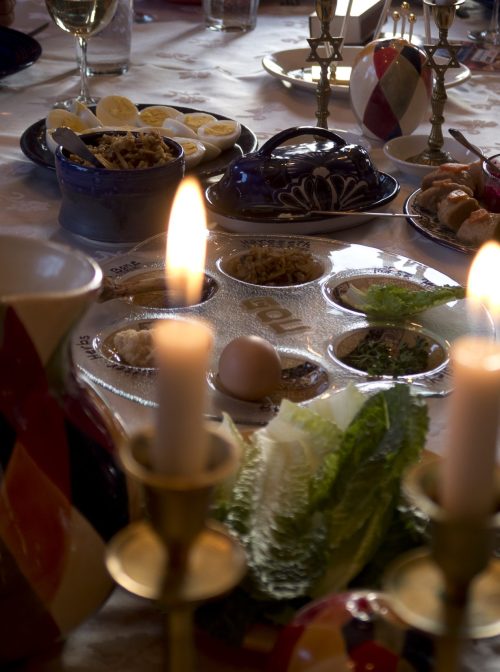An Israeli colleague recently quipped that, in contrast to most years when we seek to go “from slavery to freedom” during the ritual Passover meal of the Seder, this year, we might go “from freedom to slavery.”
Such is the mindset of many centrist and progressive Israeli Jews, who fear that the “judicial reforms” of the far-right ruling coalition in Israel’s parliament will debilitate Israeli democracy and further move towards annexation of the Palestinian West Bank. Hundreds of thousands of Israelis, the equivalent of 30 million people in America’s streets, have taken to the streets for almost four months in protest of governmental actions.
Acknowledging the wide spectrum of beliefs in the interfaith America community about Israel, Palestine, the Israeli-Palestinian conflict, and paths to peace, we would be remiss to overlook the seismic shifts taking place in one of the world’s two largest centers of Jewish life. It cannot help but have a spillover effect beyond politics and into religion and practice. What are we to do if this year feels like a regression from freedom? How are we to express a sense of regress from self-determination during a Jewish holiday that celebrates collective liberation?
First, it may be helpful to reflect upon liberation as a non-linear process. A famous Rabbinic compilation (known in Midrashic circles as Mechilta d’Rabbi Ishmael) notes that liberation is most often cyclical—with oppression and liberation coming again and again until ultimate (messianic) liberation. Within this model, the exodus from Egypt recounted in the Torah did not happen once or twice, but continually throughout history. Much as this affirms the possibility of regression from freedom, it also gives us ample space to be part of liberatory movements and renewed paths to freedom.
Rather than ignoring our feelings hurt at regressing from freedom, we can explore those emotions as a way of better understanding freedom itself.
Second, it is worth studying our points of pain when we feel stuck. Great Torah scholar Nechama Leibowitz often began her discussions by having students identify the “difficulty” level grammatically, thematically, or in content. Rather than ignoring our feelings hurt at regressing from freedom, we can explore those emotions as a way of better understanding freedom itself—both for us as people, for our religious communities, and for the wider world. If we are feeling the absence of freedom, this sense might help us grasp more keenly the very idea of liberation.
Third, we would do well to reflect upon the difference between (what Isaiah Berlin termed) positive and negative freedoms. In many respects, the Exodus recounts freedom from oppression and focuses on relief from suffering. To what extent do we still have the freedom to push back against potential injustice—the positive freedoms that people harness in protest and standing up for their rights? Much as we might dwell on the decline of negative freedoms, we still have much to celebrate about the will that we engage, both individual and collective, in redemptive movements for peace and democracy.
No, this year will not be a simple one in which to celebrate Passover. No, this will not be a simple year for the modern State of Israel. But an enduring lesson from Passover itself is that freedom is an ongoing process—one to which we not only are heirs but also over which we are called to be guardians.
Rabbi Joshua Stanton is spiritual co-leader of East End Temple and Senior Fellow at CLAL—The National Jewish Center for Learning and Leadership. He has appeared on CNN, CNBC, and CBS, and his work has been featured in the Wall Street Journal, USA Today, the Daily Beast, Vox, the Associated Press, Religion News Service, and the Jerusalem Post, as well as in documentary films and international media in over a dozen languages. Listen to his podcast episode on “Interfaith America with Eboo Patel”.




